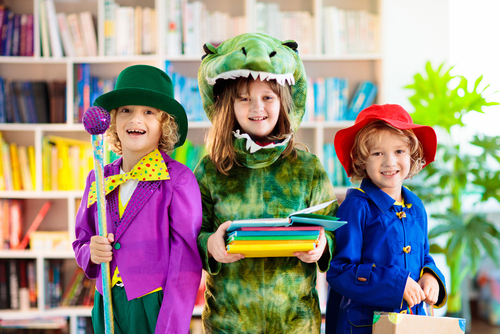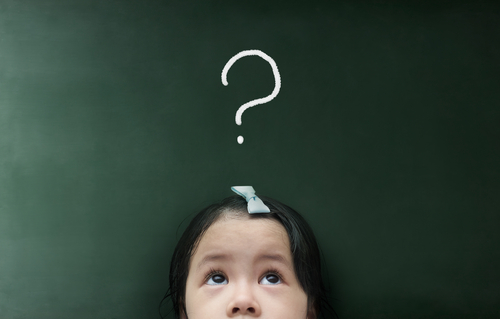When we talk about intelligence, the mind often goes immediately to a person’s ability to get high marks at school, solve complex mathematics problems or utilise a big vocabulary. However, a range of theories exist on the subject of intelligence and it is generally agreed that there are many types, covering a variety of qualities and skills.
Emotional intelligence has gained increasing recognition for its importance over recent years. When supporting children’s development and wellbeing in early childhood education and beyond, emotional intelligence is a vital element that should be nurtured.
Understanding how to teach emotional intelligence to children, how to learn it as educators and the benefits that can be derived, can have a huge impact on the quality of education delivered across early childhood education settings.

What is emotional intelligence?
Emotional intelligence is centred around possessing the skills to understand, utilise and manage your individual feelings, as well as the capacity to understand and respond to the feelings of others. While an IQ (intelligence quotient) is widely known as an intelligence measure, emotional intelligence is often referred to as emotional quotient, or EQ.
While many researchers and theorists have explored broad views of intelligence, the first and perhaps most prominent was psychologist Howard Gardner in the 1980s. Gardner’s multiple intelligences theory proposes that there are just that — multiple intelligences, and that we are not born with them all developed or available but can strengthen them. Emotional intelligence harnesses a number of Gardner’s theorised types: intrapersonal intelligence (understanding the self) and interpersonal intelligence (understanding others).
Today, this soft skill is considered to be highly valuable, enabling people to use feelings to guide their patterns of thought and their behaviours. It can also be helpful to identify, respond to and predict the feelings and actions of others, for effective communication and relationship-building.
The importance of emotional intelligence in children
Emotional intelligence can help people of all ages to develop skills that are valuable throughout education, relationships, employment and just about every aspect of life.
The benefits are far-reaching covering areas including the ability to:
- Self-regulate emotions,
- Communicate more effectively
- Build strong relationships with others
- Enhance empathy
- Promote self-motivation
- Improve the ability to listen and focus
With these powerful benefits in mind, it becomes clear just how impactful emotional intelligence can be for children.
Teaching emotional intelligence
Early childhood educators can play a crucial role in developing healthy emotional intelligence in children. There are many ways to guide children to develop this soft skill such as:
Creating space for feelings
Feelings aren’t always convenient and you may not always understand why a child is feeling a certain way at a certain time. Despite this, when a child is experiencing emotions they should be validated. Connect with a child during these times and listen to what they are going through so that they too can gain insight into the experience.
Learning to identify emotions
Extending on the previous point, use the space created for feelings to encourage or support children to identify the emotion. Are they feeling sad or angry or embarrassed? Labelling emotions expands children’s emotional vocabulary. Further, identifying emotions is also useful for learning to read other people and what they might be feeling. Simple activities like showing children images of faces and helping them to identify the feelings the person might be having can be useful to build this skill.
Tools for handling feelings
Once a child can sit in their feelings and identify them, it’s easier for them to know what tools are available to handle the emotional experience. While all emotions are completely valid, not all behaviours and actions are acceptable so children (and adults) need to have strategies in mind to express their feelings in a safe and appropriate way. A simple one to utilise is deep breathing and mindfulness techniques.
Stories, songs, role play and role-modelling are all additional valuable educational endeavours to explore emotional intelligence. Through creating learning opportunities in early childhood education that lend themselves to the development of emotional intelligence in children, we can help to shape a more caring, kind and thoughtful future.
Developing EQ in educators
Emotional intelligence isn’t only important for children. The opportunity to develop your emotional skillset is lifelong. For educators, focusing on your own emotional intelligence can help you to become the best educator possible.
At Selmar we support our learners’ emotional intelligence throughout their learning journey via our human-centred education approach. Role-modelling appropriate and positive behaviours is a huge part of supporting children’s development and wellbeing, and so we focus on growing emotional intelligence, and in fact many soft skills, in educators throughout their course. All learners are encouraged to engage with their learning in a meaningful way through self-reflection techniques facilitated in our Practical Placement Journals. This element of the coursework empowers learners to identify their own interpersonal and intrapersonal abilities and discover their full potential.
By increasing the focus on building soft skills at every stage of life, we can work together to create a compassionate future for all. Early childhood educators have the chance to develop in children the essential life skills associated with emotional intelligence, giving them lifelong foundation to flourish.



